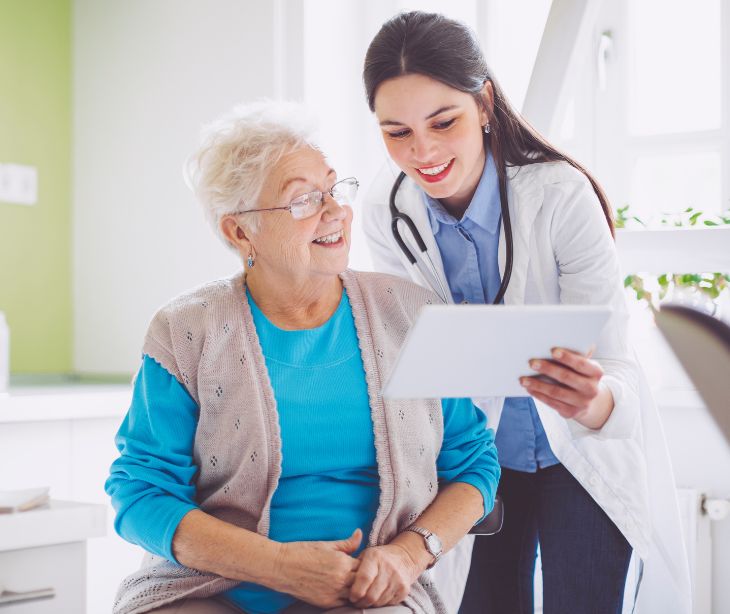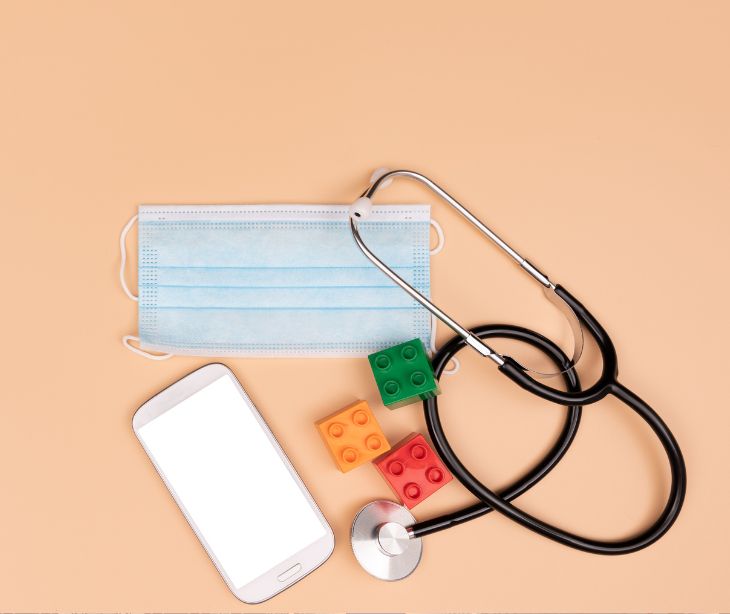
Home healthcare providers can use HIPAA compliant emails to automate appointment reminders and provide tailored patient education while safeguarding patients' protected health information (PHI).
What is home healthcare?
Medicare defines home healthcare as "a wide range of health care services that can be given in your home for an illness or injury. Home health care is usually less expensive, more convenient, and just as effective as care you get in a hospital or skilled nursing facility."
Examples of home health services include:
- Wound care for pressure sores or a surgical wound
- Patient and caregiver education
- Intravenous or nutrition therapy
- Injections
- Monitoring serious illness and unstable health status
According to Medicare, home healthcare addresses illnesses or injuries and can assist individuals in several ways:
- Facilitating recovery from their health condition.
- Supporting them in regaining their independence.
- Helping them become more self-sufficient in managing their health and daily activities.
- Assisting in maintaining their current health status or level of functioning.
- Slowing down the rate of decline in their health or functional abilities.
HIPAA compliance
Emails can support home healthcare services by providing a secure channel for communication between providers and patients.
More specifically, home healthcare providers can use HIPAA compliant emails to send sensitive patient information, like treatment plans, medication schedules, and medical histories, without compromising confidentiality.
Additionally, HIPAA compliant emails allow remote monitoring of a patient's health status, which could improve the standard of care provided.
Implementing HIPAA compliant emails
Wound care for pressure sores or surgical wounds
A home health agency can send automated HIPAA compliant emails to remind patients with a surgical wound of their upcoming wound care appointment, ensuring continuity of care and promoting optimal healing.
Patient and caregiver education
Providers can email personalized educational resources tailored to individual needs, informing patients about medications, lifestyle adjustments, and wound care practices. For example, a home health nurse can send informative emails to a caregiver with detailed instructions on wound care techniques, ensuring proper care and reducing the risk of complications.
Intravenous or nutrition therapy
Healthcare providers email dietary guidelines and medication instructions, facilitating optimal health outcomes and patient compliance during therapy sessions. For example, a nurse administering intravenous therapy at home can email patients dietary recommendations to ensure the patient receives the necessary nutrients during their treatment.
Injections
Follow-up emails allow patients to communicate any adverse reactions and help providers intervene when needed while improving patient satisfaction. For example, a patient receiving injections at home can email their healthcare provider to report any discomfort or side effects. The provider can then send a HIPAA compliant email addressing the issue promptly, and they can adjust the treatment plan if necessary.
Monitoring serious illness and unstable health status
Emails can be used to monitor patients remotely. It allows providers and patients to transmit health data in real time to support patients with serious illnesses or unstable health conditions. For example, a patient with a chronic illness can email daily updates on their symptoms to their healthcare provider for ongoing monitoring and adjustment of treatment plans to manage the condition effectively.
Read also: Offering remote healthcare using HIPAA compliant text messages
FAQs
Is HIPAA compliance necessary when emailing patients?
Yes, HIPAA compliance is a legal requirement and ensures the secure transmission of patients' protected health information (PHI), maintaining confidentiality while promoting effective communication among healthcare providers.
Go deeper: What is protected health information (PHI)?
Can home healthcare agencies send emails containing sensitive patient information securely?
Yes, using HIPAA compliant email platforms, like Paubox, which encrypts emails, allows home healthcare agencies to send sensitive patient data securely.
How can email communication support caregivers in home healthcare?
Providers can send caregivers HIPAA compliant emails with educational resources, appointment reminders, and instructions, supporting them in providing patient care.
Subscribe to Paubox Weekly
Every Friday we bring you the most important news from Paubox. Our aim is to make you smarter, faster.




